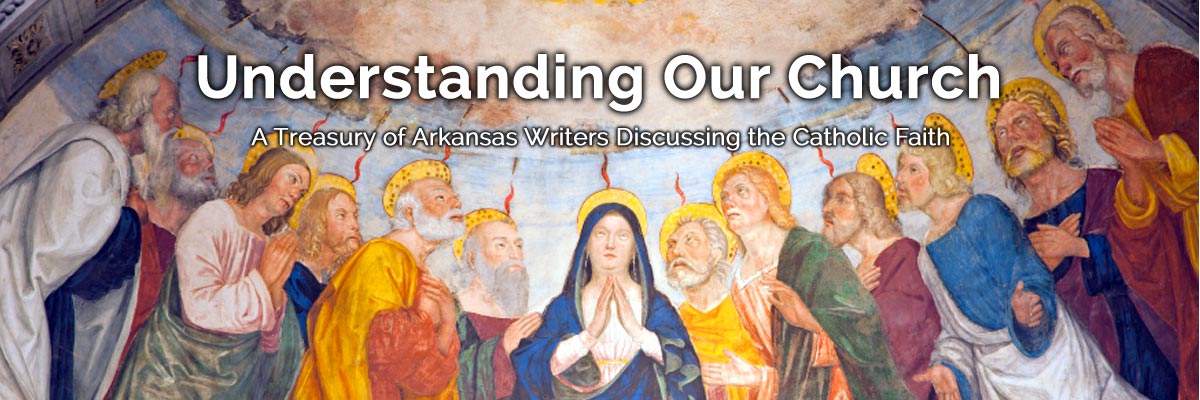Official Website of the
Catholic Diocese of Little Rock
Pray for dead to help them enter heaven
Published: October 20, 2018
By Kelli Nugent
St. Edward Church, Texarkana
When my cousin’s husband died a few years ago, I was present at the time of his death. I had arrived at the hospital with a friend, not knowing that this man was so close to death but was gravely ill.
Having just come from daily Mass and each gone to confession, we had begun quietly praying the Chaplet of Divine Mercy for the Sick and the Dying after we had observed the staff removing visitors from his hospital room.
Truly, we wouldn’t want it any other way. Who would show up to a formal affair caked in mud after finishing a ball game on a rain-soaked field and still dripping with sweat? None of us would want to arrive filthy in the presence of the divine. We would willingly desire to be so purified.
When his parents (who are not Catholic) came out of the hospital room following the death of their son, his mom gathered all those present in support of this family into a circle for prayer and stated that, “Tom (not his real name) has gone to heaven and there is nothing more we can do for him; we simply need to pray for ourselves now.”
This troubled me as something so very erroneous and rather presumptuous. How does one individual presume to know immediately the eternal destination of an individual’s soul when that is a judgement reserved to God? Certainly we place our trust in the theological virtue of hope.
It is God’s greatest desire that all mankind be saved. He sent his Son as our savior to be the perfect unblemished sacrifice who atones for our sins. God’s justice must also be satisfied, not ignored or wished away. Not one of us deserves heaven. Because of our sins, we deserve hell.
The Church has had a long-established practice of offering prayers for the dead based on 2 Maccabees 12:46, “Therefore (Judas Maccabeus) made atonement for the dead, that they might be delivered from their sin.”
Tom’s mother was likely of a denomination that did not recognize the books of Maccabees as part of sacred Scripture. However, in Matthew’s Gospel (5:48) we are exhorted, “So be perfect, just as your heavenly Father is perfect.” Also, the Book of Revelation (21:27) states that “… nothing unclean will enter it (heaven).”
Because we are called to perfection and we know that which is unclean will not enter heaven, God himself provides the solution.
Purgatory is an expression of God’s mercy providing a state of final purification of any remaining sin to those who died in God’s grace and friendship, cleansing them of all persisting imperfections and attachment to sin, preparing them for entry into heaven.
Truly, we wouldn’t want it any other way. Who would show up to a formal affair caked in mud after finishing a ball game on a rain-soaked field and still dripping with sweat? None of us would want to arrive filthy in the presence of the divine. We would willingly desire to be so purified.
Because our souls are immortal — not dying with our bodies, but surviving it and awaiting the resurrection of the dead — they live on, remaining connected with the rest of the body of Christ. The Bible exhorts us to pray for one another and we ought to pray for all who are in need, including the deceased.
Our prayers of intercession and supplication are of assistance and efficacious for the souls of those who have died, even those who died a long time ago for God is not bound by space and time as we are. All time is present to him, so when we pray for someone who died long ago, our prayers are present to God as the same “time” as that individual’s need.
Holy Mother Church teaches us the corporal and spiritual works of mercy. Let us fulfill this spiritual work of mercy: To pray for the living and the dead. We can offer our prayers, sacrifices, alms and, most importantly, have holy Masses offered for them.
I continue to pray for Tom and his mother, who has now met her Savior face to face, knowing that prayers offered for her soul and his are indeed a good work and benefit to them.
A pamphlet, Chaplet of Divine Mercy for the Sick and the Dying, can be purchased at marian.org.




